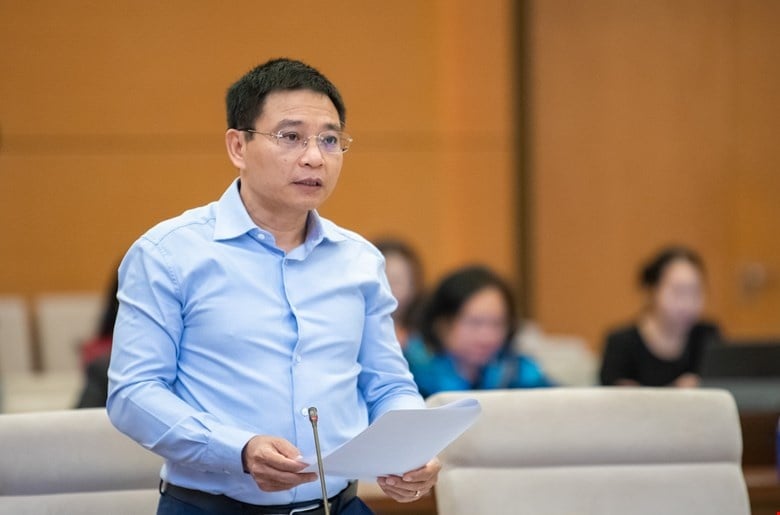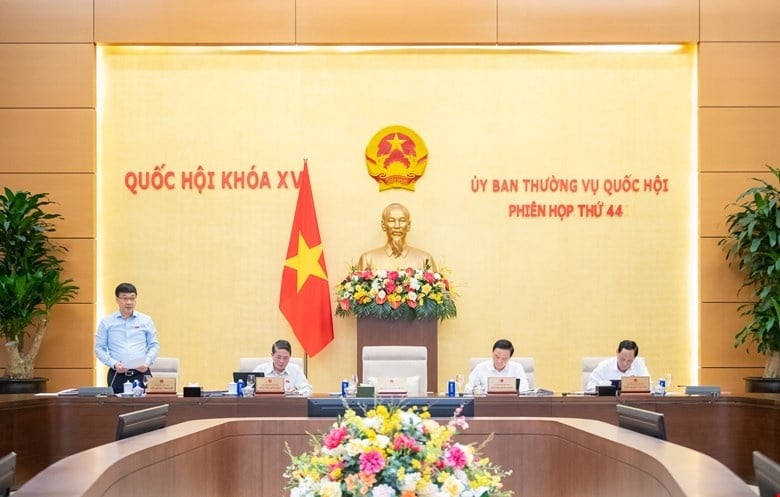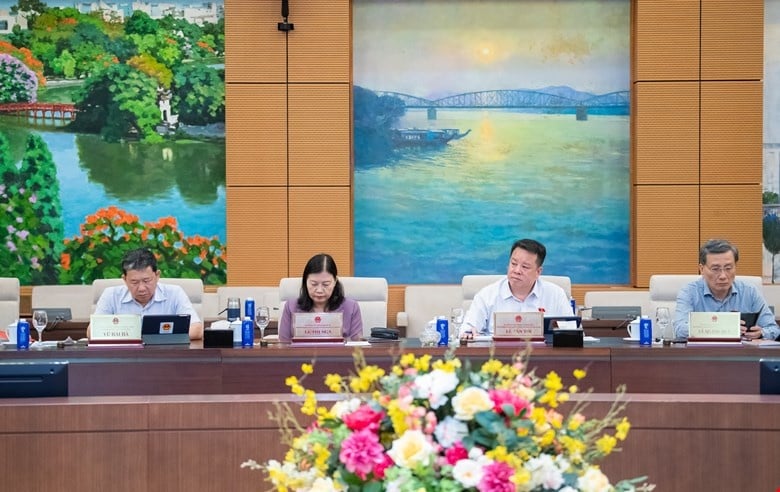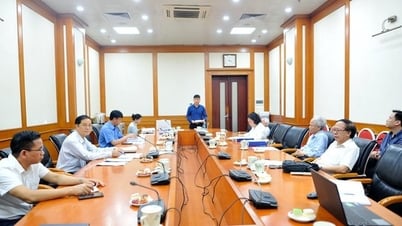With the goal of achieving GDP growth of 8% or more in 2025, the Government proposes to expand the cases of exemption and reduction of land use fees and land rents according to Clause 2, Article 157 of the 2024 Land Law, and at the same time reduce land rents by 30% in 2025. This policy not only inherits incentives from previous land laws but also supports priority areas such as digital transformation, agriculture, and social security, creating strong motivation for businesses and people to overcome economic challenges.
Boosting economic growth through land rent reduction in 2025
Minister of Finance Nguyen Van Thang commented that the regulation of cases of exemption and reduction of land use fees and land rents according to Clause 2, Article 157 of the 2024 Land Law is necessary to ensure the continuity of preferential policies from the 2013 Land Law, while meeting the socio-economic development goals in 2025.
Beneficiaries include households resettled in flood-prone areas and fishing villages; non-profit organizations such as the Vietnam Bank for Social Policies, the Vietnam Development Bank and extra-budgetary financial funds; as well as socialized projects in the fields ofeducation , health, culture, sports and environment.
In particular, businesses employing people with disabilities or ethnic minorities, along with scientific research, digital technology and digital transformation facilities, are given priority in exempting or reducing land rent to encourage sustainable development.
The Government also proposed exempting land rent for defense projects combined with economic production and diplomatic agencies according to international treaties, to ensure consistency with international commitments and defense missions. These policies were developed based on proposals from 68 ministries, sectors and localities, demonstrating high consensus in supporting specific target groups, contributing to macroeconomic stability and ensuring social security.
To achieve the GDP growth target of 8% or more, the Government proposed to reduce land rent payable by 30% in 2025, expanding the beneficiaries compared to the 2024 policy. This policy is built on a practical assessment of business difficulties, such as slow domestic purchasing power growth, impacts from natural disasters, and global economic fluctuations.
The Government emphasized that the use of reasonable expansionary fiscal policies will support people and businesses to develop production and business, while creating momentum for breakthrough growth in the 2026-2030 period.
 |
| Minister Nguyen Van Thang reported at the meeting. |
The 2025 land rent reduction policy gives special priority to the fields of digital technology, agriculture and projects employing ethnic minorities or people with disabilities to institutionalize Resolution No. 57-NQ/TW of the Politburo on science, technology development, innovation and digital transformation.
The Government also proposed to delegate the right to proactively regulate specific subjects and exemption and reduction levels for priority areas, helping to flexibly adjust policies in accordance with development orientations of each period.
Balancing incentives and compliance with the law
The National Assembly's Economic and Financial Committee appreciated the necessity of the policy but emphasized the need for careful review to ensure specificity, compliance with legal regulations and practices, and to avoid excessive expansion of scope.
The Committee affirmed that the Government's submission to the National Assembly Standing Committee for consideration of cases of exemption and reduction of land use fees and land rents is within its authority under Clause 2, Article 157 of the 2024 Land Law, which stipulates that the Government may propose special cases not listed in Clause 1 after receiving approval from the National Assembly Standing Committee.
This policy is considered necessary to inherit incentives from previous land laws, while supporting socio-economic development goals for 2025, especially the GDP growth target of 8% or more.
However, the Economic and Financial Committee noted that Clause 2, Article 157 only applies to special and specific cases. Some opinions said that the scope of the Government's proposal is too broad, which may lose the specificity of the regulation. Therefore, the Committee suggested that the Government carefully review and ensure that the policies comply with the established principles and avoid overlapping with the cases stipulated in Clause 1, Article 157 or other legal documents.
Proposing adjustments and considering specific policies, the Economic and Financial Committee basically agreed with 11 policies and the proposal to reduce land rent in 2025 in the Government's Submission, but made some adjustments to ensure suitability and effectiveness.
Regarding the policy of exempting land use fees for resettled households in flood-prone areas and fishing villages, the Economic and Financial Committee agrees but recommends that the Government review and evaluate these programs, which have been implemented for a long time, to adjust or terminate them in accordance with reality.
Regarding the policy of exempting land rent for the Vietnam Bank for Social Policies, the Vietnam Development Bank and extra-budgetary financial funds, the Economic and Financial Committee requested that it only be applied to state financial funds established under regulations of the Government or the Prime Minister, and at the same time proposed not to apply incentives to cooperatives because it has been stipulated in Clause 1, Article 157.
Regarding the policy of exempting and reducing land rent for agricultural and rural projects, the Economic and Financial Committee proposed to limit it to the list of investment incentives in Decree 57/2018/ND-CP, avoiding duplication with current regulations.
For businesses employing ethnic minorities, the Economic and Financial Committee agrees but requests to replace the phrase "districts enjoying support policies" to be consistent with the policy of arranging administrative units.
Regarding the policy of creating initiative for the Government in exempting and reducing land use fees, the Economic and Financial Committee proposed to limit it to cases implemented within 1 year, such as the 2025 policy, to ensure compliance with legal regulations.
Regarding the proposal to reduce land rent by 30% in 2025, the Economic and Financial Committee supported and believed that expanding the beneficiaries is appropriate to the current economic situation. However, the Committee emphasized that the Standing Committee of the National Assembly only decides on cases of exemption and reduction, while the reduction level and the issuance of the Decree are under the authority of the Government. The Government needs to be responsible for the accuracy of the data, the necessity of the policy and ensuring the ability to balance the state budget within the deficit approved by the National Assembly.
Source: https://thoibaonganhang.vn/de-xuat-mien-giam-tien-su-dung-dat-tien-thue-dat-de-thuc-day-phat-trien-kinh-te-xa-hoi-163402.html


































































































Comment (0)